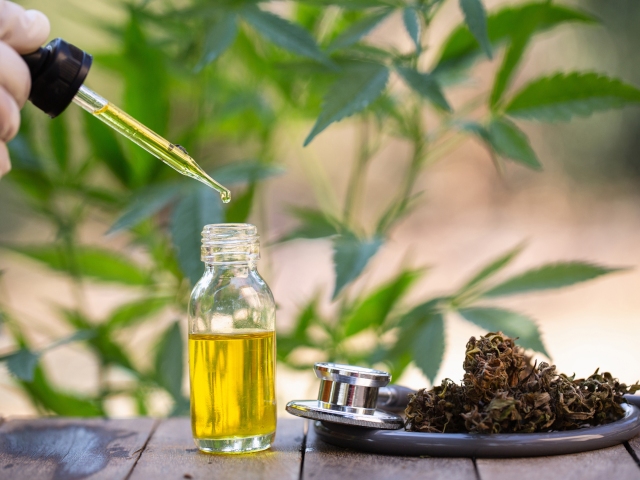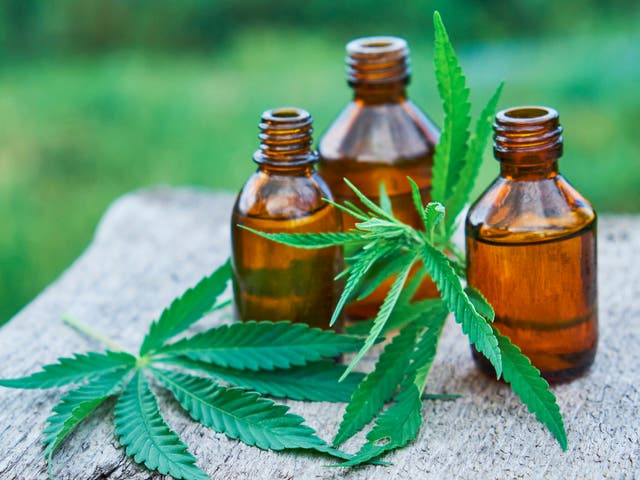CBD oil seems to be the answer to many medical issues. After a big hype in America, there is now more and more research into the operation and effects of this special good.
The active ingredient cannabidiol is obtained from the hemp plant, which we all know from CBD cultivation.
For which disorders can CBD oil bring relief?
Does this oil get you high?
And does its use carry any risks?
What is CBD oil?
CBD oil is a product that is gaining attention worldwide. A few years ago it even created a hype, because in America a young patient with severe epilepsy was helped enormously by the product.
But what is this stuff?
CBD oil is made from cannabidiol, a substance produced from hemp plants. The species used for this is called CBD sativa, the female hemp plant. Especially the leaves and flower tops of this plant are used for these purposes.
CBD, you will think. That’s THC, right?
The word CBD is often used to refer to the soft drug CBD. But it is not the same thing! CBD is in fact the Latin term for ‘hemp’. From the hemp plant CBD and hashish, among other things, are manufactured.
But one can extract all sorts of things from the hemp plant. Think of making rope, clothing, paper and even fuel. But it also has some natural substances in it that have nothing to do with CBD or hash.
Like cannabidiol.
This active ingredient is extracted from the plant and then mixed with a general oil. This can be wheat germ oil or coconut oil, for example. This is how you get the product CBD oil, which is currently very well known.

Do you get high or stoned from CBD oil?
Hemp plants are best known for the family name this plant belongs to: CBD. CBD is often associated with CBD (hemp) and hashish. These substances fall under the category of soft drugs and are known for their intoxicating properties.
The “high” you get from these substances is caused by the substance Tetrahydrocannabinol. This is better known as THC and becomes active when broken down by heat. Think of smoking or cooking with this substance.
This substance is psychoactive, meaning that it can affect the user’s behavior or worldview.
However, CBD is not a psychoactive substance and therefore does not cause a ‘high’. In other words, it does not make you stoned.
But like THC, CBD does have some side effects, which can have positive effects on medical conditions. But how does this substance work, when it enters our body?
What is the effect of CBD oil?
To explain how CBD works, we go deep into the body to the cellular level. Our cells have receptors in their membrane (sheath), padding or nucleus that can respond to signals from within or without.
Substances like CBD and THC are called cannabinoids. These make contact in the body with receptors that are especially sensitive to them: Cannabinoid receptors. Learn more about the best sleep aids by going to this website.
There are two types of these receptors: CBD-1 and CBD-2.
CBD-1 receptors are found throughout the body, but especially in the brain. Here they affect our movement, coordination, mood, emotions, pain perception, memory and so on. This is also the receptor that the substance THC binds to.
CBD-2 receptors have more of a connection to the immune system. For example, these play a role in the body’s inflammatory processes.
We suspect that cannabidiol has more to do with the CBD-2 receptors.
In the next steps of the process, however, there is still much uncertainty about how CBD works. We will now assume two different options.
One is that the cannabidiol may stimulate the body to use more of the body’s own cannabinoids (CBD-like substances).
Another possibility is that the cannabidiol binds to one of the cannabinoid receptors to release its effects on our bodies.




